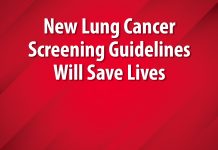Alectinib (Alecensa) received a positive opinion from the European Medicines Agency (EMA) for Medicinal Products for Human Use (CHMP) for the treatment of adult patients with advanced anaplastic lymphoma kinase (ALK)-positive non-small cell lung cancer (NSCLC) whose disease has progressed following treatment with crizotinib. Based on this positive CHMP recommendation, a final decision is expected from the European Commission in early 2017. The EMA’s recommendation is based primarily on data from the pivotal studies NP28673 and NP28761. (12/17/16)
Osimertinib (Tagrisso), received approval by the Australian Therapeutic Goods Administration for the treatment of NSCLC in patients carrying the T790M mutation. The U.S. FDA approved osimertinib for treatment of lung cancer in September 2016, while NICE recommended the drug be made available under the Cancer Drugs Fund in October. (12/22/16)
Pembrolizumab (Keytruda)
• in combination with chemotherapy (pemetrexed plus carboplatin), was accepted for review by the US FDA for first-line treatment of patients with metastatic or advanced non-squamous NSCLC regardless of PD-L1 expression and with no EGFR or ALK tumor aberrations. This is the first application for regulatory approval of pembrolizumab in combination with another treatment. The FDA granted a Priority Review with a Prescription Drug User Fee Act (PDUFA), or target action, date of May 10, 2017. The supplemental Biologics License Application (sBLA) will be reviewed under the FDA Accelerated Approval program. (01/10/17)
• received a positive opinion with recommendation of approval by the European Medicines Agency (EMA) for Medicinal Products for Human Use (CHMP) for first-line treatment of patients with metastatic NSCLC whose tumors have high PD-L1 expression and no EGFR- mutation or ALK-translocation. Pembrolizumab is currently approved in Europe for the second-line treatment of patients with locally advanced or metastatic NSCLC whose tumors express PD-L1 and who have received at least one prior chemotherapy regimen. Patients with EGFR- or ALK-positive tumor mutations should also have received targeted therapy before receiving pembrolizumab. A final decision regarding pembrolizumab by the European Commission is expected in early 2017. (12/16/16)
• received acceptance for restricted use by the Scottish Medicines Consortium within NHS Scotland, the publicly funded healthcare system in Scotland, for treatment of locally advanced or metastatic NSCLC in adults whose tumors express PD-L1 and who have received at least one prior chemotherapy regimen. Pembrolizumab, compared with a standard taxane monotherapy, was determined to significantly improve overall survival in adults with advanced NSCLC tumors that express PD-L1 and that progress after platinum-doublet chemotherapy. (01/16/17)
US National Cancer Institute (NCI) launched a new drug formulary (“NCI Formulary”) to enable investigators at NCI-designated Cancer Centers to have quicker access to approved and investigational agents for use in preclinical studies and cancer clinical trials. The NCI Formulary is a public-private partnership between NCI and pharmaceutical and biotechnology companies. Fifteen targeted agents from six pharmaceutical companies are included in the NCI Formulary, as of press time,, the majority of which are used in clinical lung cancer research. (01/11/17) NCI Formulary url: https://nciformulary.cancer.gov/available_agents/ default.htm
Varenicline (Chantix) labeling was updated by the U.S. FDA, including removal of the boxed warning regarding serious neuropsychiatric events. The removal of the boxed warning is based on the outcomes of EAGLES (Evaluating Adverse Events in a Global Smoking Cessation Study), the largest smoking cessation clinical trial in patients without and with a history of psychiatric disorder. Additional labeling revision includes updates to the warning regarding neuropsychiatric safety and the addition of information on the superior efficacy of varenicline compared with bupropion or nicotine patch. (12/16/16)











